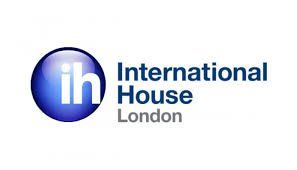
Creative Leadership, Negotiation, and Administrative Procedure Management
Course ID: 2508184501219EGI
Course Dates : 18/08/25 Course Duration : 10 Studying Day/s Course Location: Istanbul, Turkey
Language: Bilingual
Course Category: Professional and CPD Training Programs
Course Subcategories: Leadership and Management Excellence
Course Certified By: * Projacs Academy
* Professional Training and CPD Programs
Certification Will Be Issued From :
KSA
Course Fees: £6,675.29
Vat Not Included in the price. VAT may vary depending on the country where the course or workshop is held.
Click to Pay
Date has passed please contact us Sales@e-s-hub.com
Course Information
Introduction
Leadership, negotiation, and administrative procedure management are foundational pillars for success in any professional environment. These competencies are not merely about managing tasks or resolving conflicts but about fostering innovation, driving collaboration, and ensuring operational efficiency. In an era where organizations face unprecedented complexity and rapid change, the ability to lead creatively, negotiate effectively, and manage procedures strategically has become indispensable. This course is designed to equip participants with the tools and frameworks necessary to excel in these critical areas, enabling them to navigate challenges with confidence and precision.
Creative leadership transcends traditional management practices by emphasizing adaptability, empathy, and innovative problem-solving. Drawing on theories such as transformational leadership (Bass, 1985) and design thinking (Brown, 2008), this course explores how leaders can inspire teams, foster a culture of creativity, and align organizational goals with individual aspirations. For instance, companies like Google and Pixar have demonstrated the power of creative leadership in driving groundbreaking innovations, underscoring its relevance across industries.
Negotiation skills, on the other hand, are essential for resolving conflicts, securing resources, and building partnerships. Despite their importance, many professionals struggle with negotiation due to a lack of structured training or reliance on outdated tactics. This course addresses these gaps by integrating insights from Fisher and Ury’s Getting to Yes framework and recent research on integrative bargaining. Participants will learn to approach negotiations as collaborative opportunities rather than adversarial contests, as exemplified by the successful resolution of the 2015 Iran nuclear deal through diplomatic negotiation.
Administrative procedure management ensures that organizations operate efficiently while maintaining compliance with regulatory standards. Yet, many professionals find themselves overwhelmed by bureaucratic complexities or fail to recognize the strategic value of streamlined processes. By incorporating principles from Lean Six Sigma and ISO quality management systems, this course provides participants with practical strategies to optimize workflows, reduce inefficiencies, and enhance accountability. A notable example is Toyota’s implementation of the Kaizen philosophy, which revolutionized manufacturing through continuous improvement.
The intersection of these three domains—creative leadership, negotiation, and administrative procedure management—creates a powerful synergy that empowers individuals and organizations to thrive. Mastering these skills enables professionals to address multifaceted challenges, from leading cross-functional teams to negotiating high-stakes agreements and designing robust administrative systems. The benefits extend beyond personal growth; organizations that invest in developing these competencies often experience improved performance, higher employee engagement, and sustained competitive advantage.
Through a blend of theoretical insights, real-world case studies, and hands-on exercises, this course offers a comprehensive learning experience tailored to the needs of modern professionals. Whether you are navigating the complexities of global supply chains, managing diverse teams, or implementing new policies, this program will equip you with the knowledge and skills to achieve excellence. Join us on this transformative journey to unlock your potential and drive meaningful impact in your organization.
Objectives
By attending this course, participants will be able to:
Analyze the core principles of creative leadership and apply them to inspire innovation and foster team collaboration.
Evaluate negotiation strategies using frameworks such as integrative bargaining and BATNA (Best Alternative to a Negotiated Agreement).
Design streamlined administrative procedures that align with organizational goals and regulatory requirements.
Implement conflict resolution techniques to address workplace disputes and enhance team dynamics.
Assess the role of emotional intelligence in leadership and negotiation to build stronger interpersonal relationships.
Synthesize data-driven insights to optimize decision-making processes within administrative functions.
Develop action plans for continuous improvement in leadership, negotiation, and procedural management practices.
Who Should Attend?
This course is ideal for:
HR managers seeking to enhance their leadership capabilities and streamline administrative processes.
Team leaders and project managers who need advanced negotiation skills to manage stakeholder expectations.
Consultants and trainers focused on organizational development and process optimization.
Educators and trainers interested in integrating leadership and negotiation concepts into their curriculum.
Mid-level professionals transitioning into managerial roles requiring expertise in administrative oversight.
Training Method
• Pre-assessment
• Live group instruction
• Use of real-world examples, case studies and exercises
• Interactive participation and discussion
• Power point presentation, LCD and flip chart
• Group activities and tests
• Each participant receives a 7” Tablet containing a copy of the presentation, slides and handouts
• Post-assessment
Program Support
This program is supported by:
* Interactive discussions
* Role-play
* Case studies and highlight the techniques available to the participants.
Daily Agenda
The course agenda will be as follows:
• Technical Session 08.30-10.00 am
• Coffee Break 10.00-10.15 am
• Technical Session 10.15-12.15 noon
• Coffee Break 12.15-12.45 pm
• Technical Session 12.45-02.30 pm
• Course Ends 02.30 pm
Course Outlines
Foundations of Creative Leadership
Understanding the principles of transformational and servant leadership.
Applying design thinking methodologies to solve organizational challenges.
Building trust and psychological safety within teams.
Case study: Lessons from innovative leaders at Tesla and Airbnb.
Day 2:
Mastering Negotiation Skills
Introduction to integrative vs. distributive negotiation approaches.
Developing win-win solutions using the Harvard Negotiation Project framework.
Handling difficult conversations and overcoming impasses.
Role-playing exercise: Simulating a high-stakes business negotiation.
Day 3:
Streamlining Administrative Procedures
Overview of Lean Six Sigma and its application in administrative contexts.
Identifying bottlenecks and inefficiencies in existing workflows.
Ensuring compliance with legal and regulatory standards.
Group activity: Redesigning a sample administrative process.
Day 4:
Conflict Resolution and Emotional Intelligence
Recognizing common sources of workplace conflict.
Utilizing mediation techniques to resolve disputes effectively.
Enhancing self-awareness and empathy through emotional intelligence.
Real-world example: Resolving union-management conflicts in aviation.
Day 5:
Strategic Integration and Continuous Improvement
Aligning leadership, negotiation, and administrative goals with organizational strategy.
Leveraging technology to automate and enhance procedural efficiency.
Creating a roadmap for ongoing professional development.
Final workshop: Presenting group projects on integrated solutions.



















































